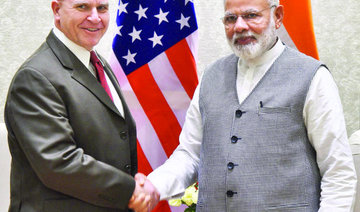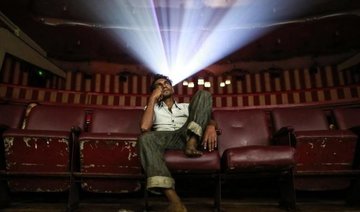I first encountered Arab News 30 years ago when I arrived in Jeddah as the Indian consul general. I had come from New York with no briefing from my ministry. I had no knowledge of the country I had made my new home, no understanding of the community whose interests I had to represent, and no familiarity with the dynamics and complexities of Haj operations, which I had to manage so Indian pilgrims would have a safe and comfortable pilgrimage.
In this period of ignorance and confusion, Arab News became a beacon of knowledge and understanding. Every day its pages, carefully put together by its learned and meticulous editor Khaled Almaeena, gave me an insight into the Kingdom and its great leaders, the concerns of my community, and the importance and intricacies of the annual pilgrimage. Its writers became founts of guidance to me, and these ties evolved into strong friendships.
Given its large Indian readership, Arab News was always generous in its coverage of matters of interest to the Indian community. This included news of home, and of social and cultural events organized by the community. The paper, with its distinctive light-green tinge, was further embellished with an excellent cartoon page and a crossword that I tried to complete every day.
I recall that all aspects of the organizing and functioning of the Indian school in Jeddah had an all-consuming fascination for the community, with stories, comment and letters to the editor appearing almost daily. I soon realized that the community had a deep interest in children’s academic success, ensuring the excellent results of the Kingdom’s Indian schools.
The 1980s were a difficult period for both South and West Asia. Indian-Pakistani relations had deteriorated from political differences to name-calling and low-intensity conflict, all of which found a place on the front pages of Arab News. The editorial policy was generally fair, and I had little reason to complain. We also experienced the last periods of the conflict in Afghanistan and the Iran-Iraq war, and Iraq’s terrible occupation of Kuwait.
All these tumultuous events were played out in Arab News with fairness and clarity. I enjoyed the added benefit of background discussions with Almaeena and his colleagues.
After my stint as consul general, I was back in Saudi Arabia as ambassador twice, in 2000 and 2010. Once again, Arab News was my guide and companion as the region faced the challenges of the 9/11 attacks, the invasion of Iraq and the subsequent civil conflict, the destruction wreaked by Daesh, the Arab Spring and the descent into war in Syria and Yemen.
The Kingdom was at the center of several of these developments, as its leaders tried to bring regional order and sanity. Amid all this, Arab News remained the influential voice of Saudi Arabia, reporting the views of its policymakers and providing considered assessments from important Saudi, Arab and foreign commentators, such as Abdulrahman Al-Rashed, Tariq Al-Maeena and M.J. Akbar.
Khaled remained the rock-solid institution at the heart of these challenges, providing a calm understanding of what was taking place and the nature of the various forces at play. But he also unobtrusively cultivated the next generation of Arab News leaders and writers.
Now, the youthful and erudite Editor in Chief Faisal J. Abbas is poised to lead this paper into the new era, marked by complicated regional differences, serious global contentions, and above all the challenges posed by technological changes that have revolutionized mass media and information flows.
At 42 years, Arab News is mature and self-confident, has the vision and high standards set by its history, and is staffed by writers of integrity and erudition. There is thus little doubt that it will continue to be the beacon of information and understanding for new arrivals that it was for me 30 years ago.
• Talmiz Ahmad served as Indian ambassador to Riyadh twice (2000-03 and 2010-11). He is the only Indian diplomat to have been awarded the King Abdulaziz Medal First Class for his outstanding contribution to Saudi-Indian relations. Beginning next week, he will be writing a fortnightly column
in this newspaper.






























